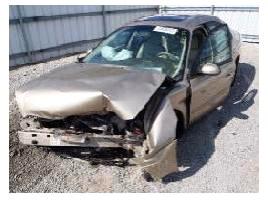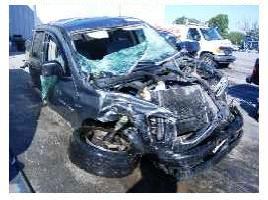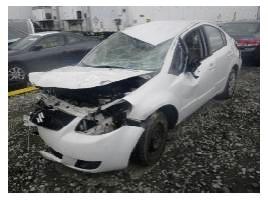Ask an Attorney a Question for FREE!
Claim vs. Rates
The dilemma: to file or not to file? When not to file an auto insurance claim
The question of when not to file an auto insurance claim comes up often. The best person to answer it is your agent.
However, you must truly believe that your agent is out there to protect your interest and not his or hers. Insurance agents make money by selling you an auto insurance policy.

However, they make even more money (bonuses at the end of the year) by selling policies to people that will not make any claims.
They call that a loss ratio. Depending on the agent’s loss ratio, the bonus or payment from the insurance company will increase or decrease. The loss ratio is also affected by how big of a loss you have “the bigger the loss, the more money your agent losses.”
The idea behind this structure of payment is that the agent will not sell policies to people that are high risks, therefore saving the insurance company some money.
The agent is supposed to pull your driving record and inspect each individual vehicle to make sure those cars are “safe” to drive.
They also look to see if the car has any visible previous damage. They are also supposed to check to see if your vehicle has any aftermarket equipment (i.e. custom wheels).
The agent needs to assess the risk before selling the property. Many agents never take a look at your car. They simply give you a policy.
However, this same structure discourages agents to do their job. The agent has a duty to protect your interest by advising you what to do when you have a claim. However, the potential decrease in their loss ratio will completely discourage that conduct.

When asking the question of when not to file an auto insurance claim to your agent, remember that they have a vested interest in declining to file a claim. They will probably suggest to you not to do it. An honest agent will truly put your interest first and tell you if you should file or not.
You are probably asking when not to file an auto insurance claim because you want to know how a claim can affect your rates and premiums. I will discuss the possibilities and try to explore in a general sense because every insurance company has a different approach.
Insurance companies have underwriting departments. The underwriters are responsible for writing policies and for evaluating the final risk. If the claim adjuster believes that there are issues to be reported, then the underwriter will get a report.
The claim adjuster has a lot of power. They decide if there is coverage, who is at fault, how much your pain is worth and when to settle a claim. However, they do not have the power to cancel your policy or not to renew it.
They can make suggestions, but that is about it. In fact, the claim adjuster has little to do with your rates. It is the insurance claim itself that can give you trouble and increase your rates.

Remember that an insurance policy is a product. You want to use products when you need them. Insurance companies want to discourage that thinking. They cannot increase your rates because you file a claim. However, this does not mean that insurance companies will pitch it different ways to increase your premium.
Remember that insurance companies businesses, very competitive ones. They do not want you to go elsewhere and get a new policy.
They will try to increase your premium little by little so you pay more but stay with them.
To be able to answer the question of when not to file an auto insurance claim, we must first look at coverage and/or deductibles.
The type of claims and circumstances you should consider before deciding when not to file an auto insurance claim:
- Doing business in your personal car (companies want you to buy a commercial policy)
- Delivery routes (deliver the newspaper and/or pizza)
- Increased exposure of liability
- Alcohol or Drug-Related Claims
- Citations (getting a ticket because of the accident)
- Not wearing a seatbelt
- Racing or accidents in a race track (this one could actually exclude coverage all together)
- Several Claims in a short period of time (i.e. three claims in six months)
- Being completely unreasonable when dealing with a claim adjuster (never answering the adjuster's letters or phone calls)
- Aggravating the claim (getting out of the car and getting in a fight with the other driver)
- Intentional Damage (ramming someone to make your point)
- Road Rage
- Lending your car to someone else for him to drive
The categories above really reflect those situations where the insurance company learns that the risk of insuring someone is higher than they believed at first.
Some of the factors above can only exclude coverage IF AND ONLY IF it is expressly written in the policy. However, they can adjust your premium when any of these events.
Rates Overview
One vehicle accidents and rates
Two or more vehicle accidents and rates
Compare Online Auto Insurance Quotes
|
For a Free Review of Your Case
Please Call (866) 878-2432 |


